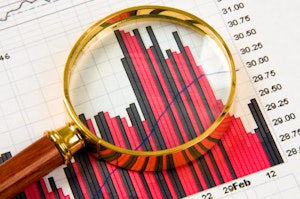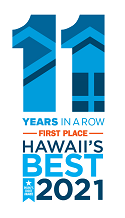Special Locations White Paper

Whether you're considering your first investment-property purchase or your fifteenth, to turn a profit in Hawaii's complex condominium market, you'll need to understand the various factors affecting condo appreciation, including the building's age, location, maintenance fees and cash-flow potential.
First, it's worth noting that 10 years ago, in 2007, Oahu had twice as many condos on the market as we do now. In fact, inventory for sale is so low that if no new listings came on the market, we'd run out of available units in only three months! This super-tight condo inventory contributed to a record-breaking median price of $425,000 for condos in July 2017. This is all good news for investors--assuming they're able to snap up a property or two before prices continue to climb.
How Does Condo Age Affect Price?
After reading our tips for buying a condo, you'll want to narrow your focus; one factor to consider is the building's age. The below chart, which focuses on Honolulu condos, excluding Waikiki, shows how average price varies based on the age of the property.
Average prices appreciated for all building ages, with the exception of condos built prior to 1960 (of which there are very few anyway). In general, we begin to see a significant difference in value between those condos built before 1990 and those built after, with the newest condos being the highest valued per square foot. Of course, many other factors, such as location, amenities, size and condition of the unit, and more contribute to the price per square foot, so be sure to work with a qualified Realtor to make the best choice for your budget and needs.
How Do New Condos Perform vs. Older Condos?
Locations' Research has determined that new condo projects tend to follow the overall condo market peaks and valleys, but perform on average, 5 percent better (see below chart). In the case of decade-old Hokua--among the first luxury projects completed in now-booming Kaka'ako--initial investors saw average gains of 75 percent when they resold within just one year of closing! While Hokua's returns were a combination of luck and timing, nearly all of the other new projects since 2006 have seen an average appreciation of 10 percent or more. So, while investing in a new condo will require some patience, history has shown that if you're able to park your down payment for a few years during construction, you may do better than the overall condo market in a relatively short time.
What's the Average Gain on a New Condo Sale After Reselling?
The below chart shows the average gain on resale of units in new condo developments from 2006 to 2016 within one year of closing. While Hokua was the far-and-away "winner" with an average gain of more than $735,000 at resale, nearly all developments fared well, with a few exceptions between 2008 and 2010; of course, there was a general retraction in the overall market during that time.
For new condos that resold within one year of closing, we compared gains of immediate resale with what happened in the overall market during that time*. The conclusion is that new condo buyers who resold in the "first" year generally did about 5% better than market overall.
*Using an overall market 3-year percent change in median price, assuming an average 2-year waiting period from sale contract to construction completion and one year to resell).
What About Maintenance Fees?
Maintenance fees run the gamut, depending on a building's age and amenities. In general, newer buildings have higher maintenance fees; however, older buildings may have more maintenance issues to consider. A good rule of thumb is to compare the fees of other buildings in the neighborhood of similar age and amenities to see how the fees stack up.
Ready to learn more? Contact your agent today or start browsing available condos now.
Congratulations, you have access to Hawaii's most comprehensive Real Estate Search! Please help us to better serve you by answering these optional questions.
Facebook Registration
This email is already registered. Click the button below and we'll send you a link to reset your password.
You have already registered using your FB account.
Check your inbox for an email from brokersmls@locationshawaii.com. It contains a link to reset your password.
The agent who gave you access to this website is no longer with Locations LLC.
Due to local MLS regulations, you will need to re-register if you would like to continue your access.
We will pre-fill the registration form with information in our files. Once you click Register you can either select a new agent or one will be assigned for you.
Sorry for the inconvenience, Locations LLC.
Schedule a Virtual Tour
Request an appointment to view this property by completing the information below. Please note your appointment is not confirmed until an agent calls you.
Disclaimer: The properties we may show you may be Locations LLC listings or listings of other brokerage firms. Professional protocol requires agent to set up an appointment with the listings agent to show a property. Locations, LLC may only show properties marked "Active" and "ACS".
Listings in
Additional Criteria
Keep your eye on this property! Save this listing and receive e-mail updates if the status of the property changes.
Share this property by completing the the form below. Your friend will receive an e-mail from you with a link to view the details of this property.
How can we help?
Send a message and we'll respond shortly.
We will not rent, share, or sell your information. Privacy Policy.










